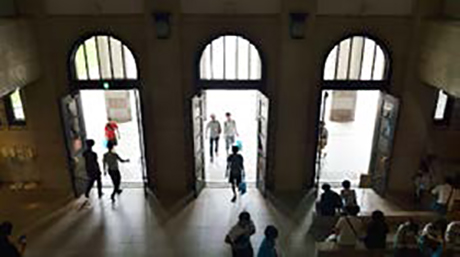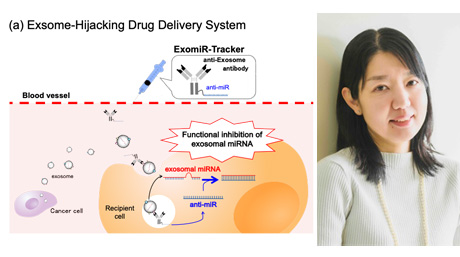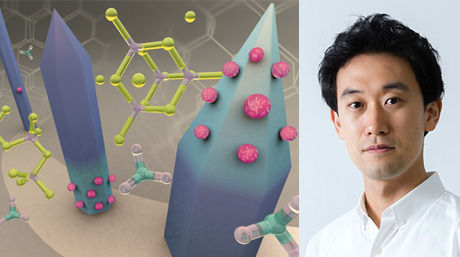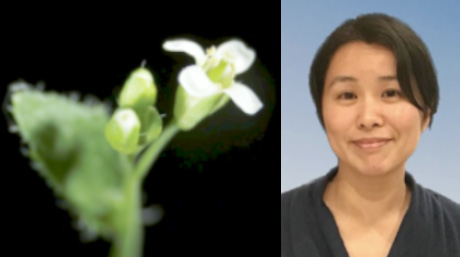Life Science and Technology News
【Labs spotlight】 Nakashima Laboratory(until Nov. 2017)
Analysis and utilization of microbial communities
The Department has a variety of laboratories for Life Science and Technology, in which cutting-edge innovative research is being undertaken not only in basic science and engineering but also in the areas of medicine, pharmacy, agriculture, and multidisciplinary sciences.
This "Spotlight" series features a laboratory from the Department and introduces you to the laboratory's research projects and outcomes. This time we focus on Nakashima Laboratory.
※Associate Professor Nakashima moved to another research institution on December 1, 2017.
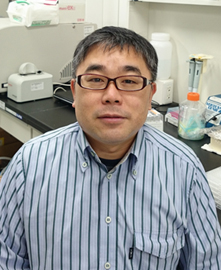
Life Science and Technology
Associate Professor Nobutaka Nakashima
| Degree | PhD 2000, Kyushu University |
|---|---|
| Areas of Research | Bacteriology, Applied microbiology, Genome sciences, RNA sciences |
| Keywords | Metagenome, Biofilm, Antisense RNAs, Microbial community, Bioenergy, Biomass utilization |
Research interest
Our research is focused on analyzing and utilizing bacterial populations without isolating individual bacteria.
Various bacteria live in soil, water, air, and the bodies of animals. We think that there are two problems in current bacterial researches. First, most researches are carried out using isolated pure cultures, but it is said that only a small percentage of the microbes that exist on earth has been isolated so far. Second, some bacteria live in the planktonic state whereas others live as sessile cells; although the majority of microbes on earth is thought to be in the latter state, they are preferentially cultured in planktonic states in laboratories. As one familiar example, slimy structures are routinely found on kitchen sinks, which is called biofilm and made of a variety of sessile bacteria.
We believe that industrially and pharmaceutically valuable genes are buried in untouched bacterial communities. In other words, bacterial communities are full of treasures. Also, emergence of biofilms is problematic in medical and sanitary fields. Therefore, we are trying to do the following researches.
- 1.Establishing model bacterial communities and biofilms that are re-producible for a long time in laboratories.
- 2.Investigating how biofilms are constructed and developing methods to remove them.
- 3.Discovering valuable genes that are sleeping in bacterial communities without isolating bacteria (metagenome analysis).
- 4.Combating one unwanted bacterium in populations to keep bacterial communities (flora) in a favorable state.
Research findings
Selected publications
- 1.Nakamura, Y., Yamamoto, N., Kino, Y., Yamamoto, N., Kamei, S., Mori, H., Kurokawa, K., and Nakashima, N. (2016) Establishment of a multi-species biofilm model and metatranscriptomic analysis of biofilm and planktonic cell communities. Appl. Microbiol. Biotechnol.100, 7263-7279.
- 2.Akita, H., Nakashima, N., and Hoshino, T. (2015) Bacterial production of isobutanol without expensive reagents. Appl. Microbiol. Biotechnol.99, 991-999.
- 3.Nakashima, N., Akita, H., and Hoshino, T. (2014) Establishment of a novel gene expression method, BICES (biomass-inducible chromosome-based expression system), and its application to the production of 2,3-butanediol and acetoin. Metab. Eng. 25, 204-214.
- 4.Nakashima, N., Ohno, S., Yoshikawa, K., Shimizu, H., and Tamura, T. (2014) A vector library for silencing central carbon-metabolism genes with antisense RNAs in Escherichia coli. Appl. Environ. Microbiol. 80, 564-573.
- 5.Nakashima, N., and Tamura, T. (2013) Gene silencing in Escherichia coli using antisense RNAs expressed from doxycycline-inducible vectors. Lett. Appl. Microbiol. 56, 436-442.
- 6.Nakashima, N., and Tamura, T. (2012) A new carbon catabolite repression mutation of Escherichia coli, mlc*, and its use for producing isobutanol. J. Biosci. Bioeng. 114, 38-44.
- 7.Nakashima, N., Goh, S., Good, L., and Tamura, T. (2012) Multiple-gene silencing using antisense RNAs in Escherichia coli. Meth. Mol. Biol. 815, 307-319.
- 8.Nakashima, N., Goh, S., and Tamura, T. (2012) Subtracting gene function by gene silencing and disruption in bacteria. Curr. Biotechnol. 9, 166-174.
